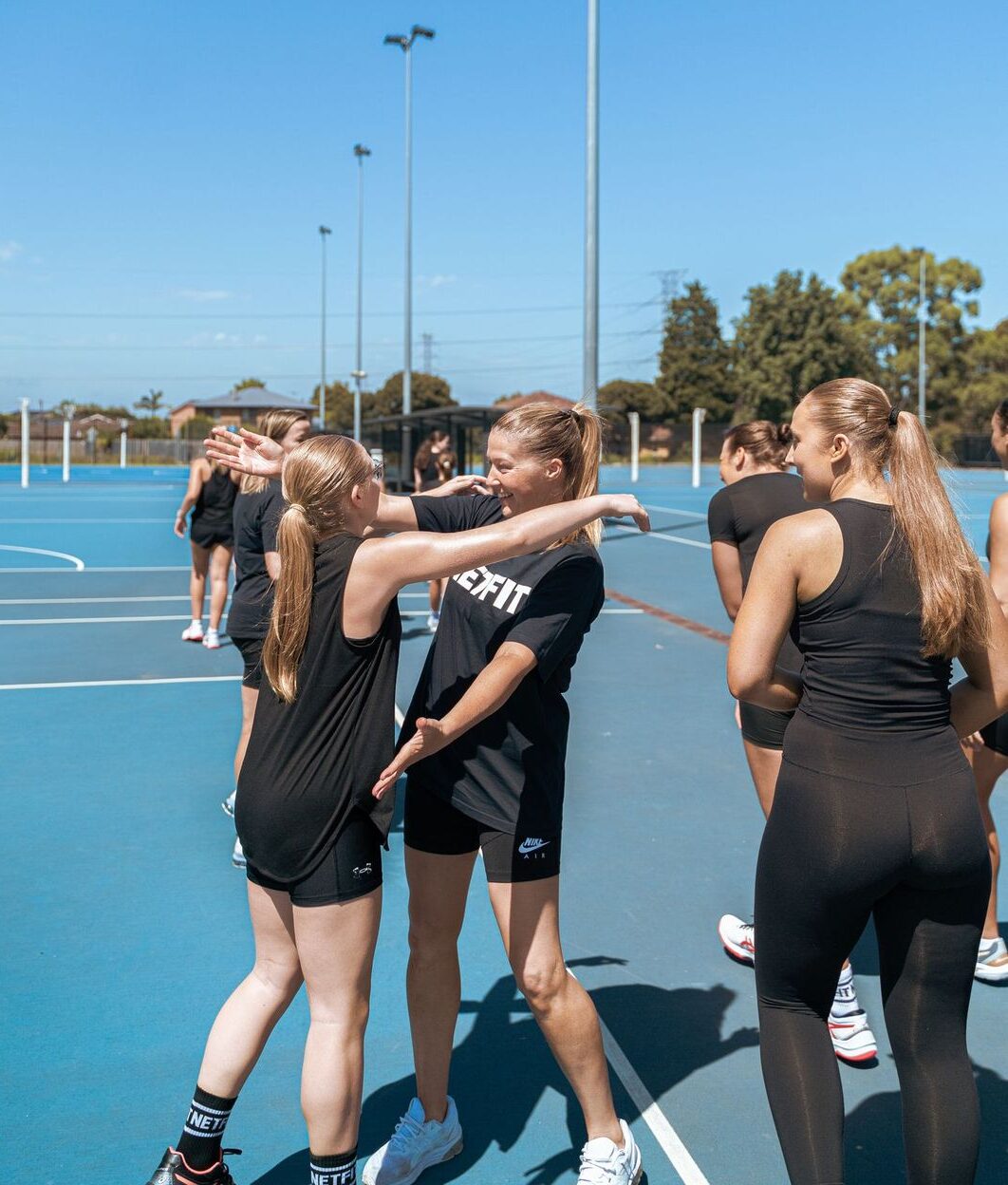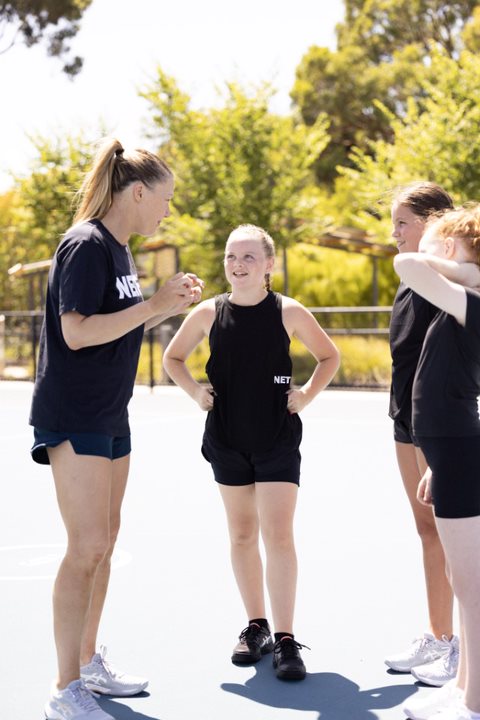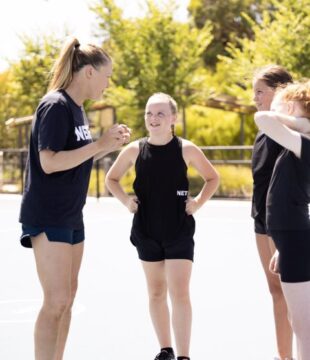How do you talk to your kids after their netball games?
We see the parents who trudge along to their children’s games rain, hail or shine, watching keenly and cheering from the sidelines. We also see the ones who drop their child off most weeks with somewhere else to be, whether it be work, other kids commitments, there are a number of reasons why parents can’t always be at each kids game.
Unfortunately, it is pretty common for people to value the seemingly supportive parenting of those who attend every game more than those who aren’t as visible at our courts. Surely a parent who is present at every game is superior in the parenting game to those who rarely turn up to watch their child right? Is this really the most important indicator of success when it comes to parenting children who play sports?
There is no question that there are many benefits of a present parent, but let’s keep in mind that this doesn’t always equate to one who provides a safe, supportive environment for their child to excel. Does the child whose parent who is not always present feel more freedom when playing? Do they feel less pressure and expectation? Of course, there is no cut and dry answer, as there are so many variables to consider in everyone’s individual circumstances. But what I can say, is that in my experience as both a former player and a coach, the single most important thing that defines our parenting and lays the foundation for our relationship with our child in sports is the conversations we have with them after the game! The messages that parents give their kids after a game can impact their journey in the sport significantly – it can either do wonders for their self-esteem, confidence and resilience or on the contrary, do the very opposite. As parents, we’ve most likely witnessed our child play in some soul-destroying defeats, some triumphant victories, and everything in between. What you say after the game when they wander over to you after the coach’s address, in the car on the way home, or maybe even when your child arrives home after the game, sends them messages about what you value most about their participation in our game.

So what should we be saying to best support our children?
Well if you are fortunate enough to have been at the game watching your child, avoid bringing up mistakes. In most cases they’ll be fully aware of those and rehashing everything will only deflate their confidence further. Instead, catch them in their triumphant moments!
Recall when you saw them scoring a goal or taking an intercept, recall if they played with a great attitude and appeared to enjoy the game! Keep the focus on what they did well throughout the game and at no stage should you try to compare them to other players. Model being proud of the team as a whole, and be really mindful that comments you make do not undermine and put down other players on the team, or the coaches or umpires officiating. Monkey see monkey do right – kids learn sportsmanship through example and should always be encouraged to be respectful! Consider what your child is potentially feeling. Create a comfortable space for them to have discussions and don’t discourage disappointment.
If you weren’t able to watch your child play it is pretty common for our first question to be based on whether they won or lost their game. While I am sure that for many of us who have asked this question before it is probably just coming from a genuine curiosity, after all, it is a competitive sport right? It is certainly ok for this to be part of your discussions at some point, but if this is the first question you ask, consider that it is potentially sending a message to your child that the thing you value most is winning. Instead, consider asking what they thought they did well. If this leads to a discussion around things they weren’t happy with, follow up with questions about what they might do differently in the next game. This will allow them to reflect, and understand their mistakes, yet immediately gives them an opportunity to look ahead.

It is really important to remember that you are their parent, not their coach. When they are disappointed, remind them that you are proud of them and that your love is not dependent on their performance or the result of the game. Also, don’t be too hard on yourself – we won’t get it right every time because there is no formula for the right thing to say after a game. Every defeat and every victory will bring new challenges to your netballer, simply be prepared to meet their emotions by controlling yours. Meet them where they need you, and lead by example and you are well on your way to raising a resilient, empathetic, reflective netballer.
What about coaches? What should they be saying after the game?
As coaches, our responses should also take into account the previous advice offered to parents, but there is one more important element that parents often struggle with when it comes to their children that we as coaches need to include – honesty around areas for improvement! Throughout my coaching career, I have encountered many players who have a distorted view of their abilities because they have always been told all of the positive things they are doing with no balance of the things that they aren’t doing as well. It is our responsibility as coaches to provide this balance and to help players improve, and this simply can’t happen if there is nothing for them to work on.
When I coached really young juniors I used to use a ‘two stars and a wish’ concept, where players were given two things they did well (stars) and one thing that I wanted them to work on for the next game (wish). And although I never pulled this out at an A grade level, I always strived to provide a similar balance with the things that I discussed after a game with each player. I have had games I have coached where no matter what my address was at quarter time, no matter what changes I made, we simply played like a team who had never played together before….even I was struggling to explain it.

We lost miserably! And while I could have pointed out every error and all of the things we needed to improve on, I knew that was not going to help. I only had to look at their faces to understand they knew their performance as a team was less than desirable, what I had to do as a coach was first to empathise with them – I knew what that felt like, I have been there before and it doesn’t feel great. Sometimes these are the games that coaches really struggle with what to say because nothing seems to go right! So simply acknowledge that these moments happen in sport. Great teams have days like this, and we know it doesn’t define us as players or as a team, so let’s be disappointed, but let’s not dwell on it! I have also coached games that we lost only by smaller margins, but gosh they felt like wins! Why? Because we had improved so much as a team. As a coach, I chose to focus on the positives and the growth of individuals and the team as a collective.
Win or loss – there is no real straightforward approach to your communication following the game. What I will say is that this will be heavily influenced by your coaching philosophy and what you value. Show your players in your address at the end of the game that you value grit, you value their efforts and their persistence. Speak in a way that shows them that you understand their strengths and that you will be there to support areas for improvement and training sessions. Celebrate team unity and flow, whilst also celebrating when a player puts something you’ve been working on into action – celebrate the positives, acknowledge any disappointments and look forward to training sessions where you will address areas for improvement once players have had time to reflect.
Have a story to tell? Email us at info@netfitnetball.com to have your say.
